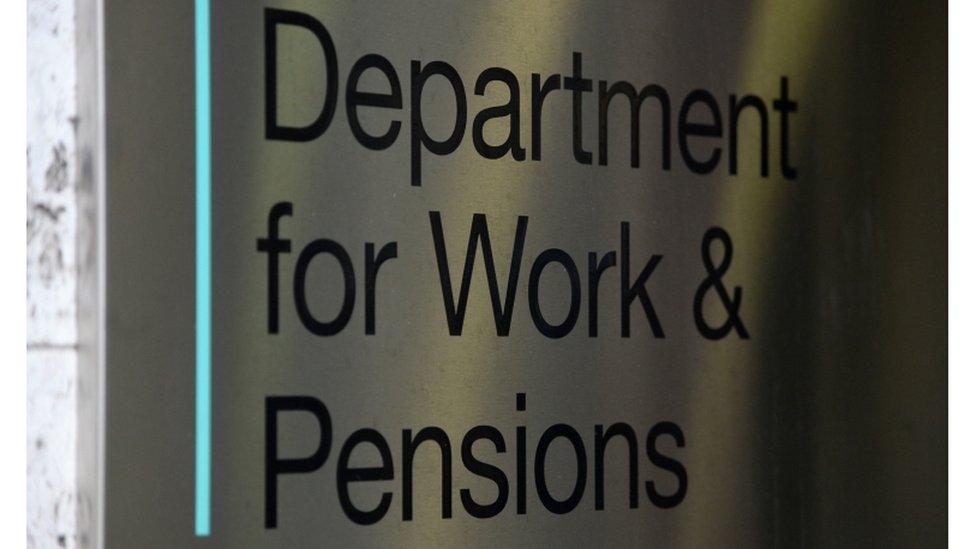Fraud victims' pay deducted for money they don't owe
- Published
- comments

The Department for Work and Pensions (DWP) has been sending letters to people demanding repayments of benefits they've never claimed or received.
Criminal gangs steal people's details to apply for advance payments of universal credit. The money is paid to them but the person whose identity has been stolen gets the bill.
If the money is not repaid voluntarily the DWP instructs employers to deduct the money directly from salaries.
Many cases involve more than £1,000.
The DWP has apologised to victims who've struggled to get through on the phone numbers they provide to report frauds.
BBC Radio 4's Money Box programme has heard from several people affected in recent weeks.
All of them received letters out of the blue demanding repayment and then struggled to report their concerns to the DWP.
Upset and frustration
Jo spent hours trying to get through to the DWP helpline to let them know that she's never applied for universal credit let alone received an advance.
When she told the DWP that she'd heard that a lot of this type of fraud was happening she was told "not to believe everything you read on Facebook".

Two weeks later, her employer called her to tell her that they'd been instructed by the DWP to deduct money from her December salary.
"That was actually really upsetting because it felt like they hadn't taken on my concerns regarding the fraud and they'd already started to recover that debt without fully investigating the situation," she told Money Box.
The DWP issues Direct Earning Notices to employers to recovers monies owed. The employer faces a fine of up to £1,000 if it fails to comply.
Another listener, Martin, was advised to report the fraud online but because he didn't know the identity of the person committing the crime he was unable to do so.
"I've spent a lot of time and had a lot of frustration with this and I still don't know whether they're going to request my employer to deduct money from my salary."
Updated guidance
In total, Money Box raised the cases of four victims with the DWP and in each instance it decided to close the claims.
A spokesman told the programme: "We do suspect, as they suggest, that there is fraud involved and we have also suspended the recovery so they shouldn't have money taken off their wages."
The DWP set up a Stolen Identity team to investigate claims of fraud earlier this year. But Stephen Timms, chair of the Work and Pensions Committee told Money Box that it wasn't working the way it should be.
Last week Conservative MP Will Quince, Parliamentary Under-Secretary at Department for Work and Pensions, answering a question put to him by Mr Timms, revealed that there had been nearly 6,000 suspected cases of universal credit identity hijack in the last six months.
In March this year the National Audit Office reported that this type of fraud could have cost the government up to £221m.
The DWP told Money Box that it had updated telephone messaging and guidance for call handlers and introduced a new process for claimants who say they are being used in a fraud.
It also urged anyone who had been unable to contact them to try again using the number 0800 916 0647.
- Published15 December 2020

- Published12 December 2020

- Published9 December 2020

- Published30 November 2020

- Published3 December 2020
